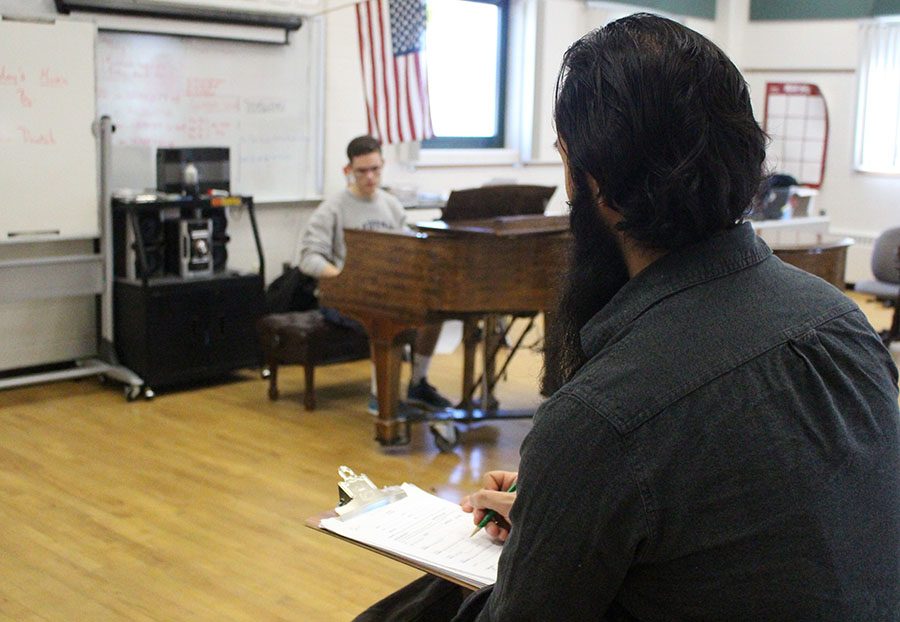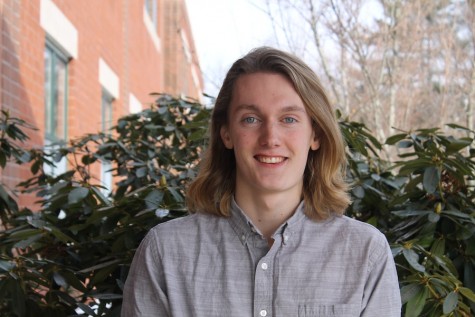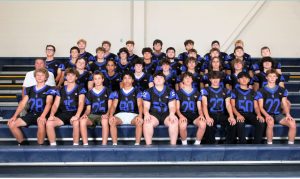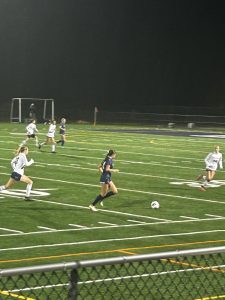Auditions: scary or educational?
A student auditions for choir director Matthew Barbosa
April 14, 2016
Auditions have always been a rather challenging and stressful endeavor for those taking their passion seriously. While there has never truly been a universal way to prepare for such a task, individual performers have discovered what works best for them.
Peter Szczeszynski ‘19, who recently auditioned on mallets for NHMEA (All State) said in regard to his audition preparation, “I stayed after school to practice and really just focused on taking it one measure at a time. When it came to nerves before the audition, however, I was all of the above.”
After being asked briefly about what he individually took from the audition process, Szczeszynski said, “Anything can happen in an audition, so it doesn’t matter how good you are, but what’s important is that it teaches you how to learn on a deadline… and how to work hard at something.”
Szczeszynski is currently preparing for an audition with Hollis Brookline’s band director, Dave Umstead, in hopes of playing piano for Honors Jazz Band in his high school years to come.
Despite his time working with many accomplished musicians such as jazz great Bob Mintzer, Jim Ketch, and Felipe Salles, Nick Sengstaken ‘16 deals with similar pressures as Szczeszynski from time to time. Holding a plethora of auditions under his belt, some of Sengstaken’s more significant experiences have been with the music programs at UNC at Chapel Hill, UMass Amherst, and UNH’s Summer Youth Music School, a renowned music-based summer camp.
Sengstaken said, “The most important thing a music instructor has ever told me is that being nervous to play for someone is selfish… so remember to walk in, relax, and give the judges what they want, which is your music. Auditions are just a snapshot of one’s abilities, talents, and personality, so the best thing to do is go in and be yourself.”
Rather than going into an audition thinking that your sole purpose is to essentially show off, Sengstaken suggests using this time to share something with the people who are there specifically to take in what you have to offer.
He added, “The biggest thing to take from an audition is that what happened happened and if you feel you prepared as much as you could then the audition was successful no matter the outcome.”
Like Sengstaken, Vanessa Hale ‘16 also hopes to study music, specifically music therapy, after high school and has an abundance of knowledge on the subject of auditions. Hale recently auditioned at Berklee College of Music and was accepted on partial scholarship for voice.
Hale says, “I think that whenever you audition for something you have the opportunity to learn. When I auditioned for Berklee, they played intervals on the piano and I knew absolutely nothing, so I went behind the piano and just started asking questions, and I ended up learning a lot just from that short period of time.”
Hale especially stressed the idea that sometimes auditions are more of a learning experience than a they are a momentary judgement of one’s skills.
She went on to say, “The biggest thing to remember when auditioning for really anything is to show interest in what you are there to do, whatever that may be. Whether it’s a sports team tryout or a musical audition, if you learn, you succeed.”
All in all, auditions are tough; there will always be success just as there will be loss, but what’s most important is that something is retained from the process.













![Students in Archaeology use tools in a mock excavation. As a class that focuses on hands-on learning, students are able to gain crucial life skills. “[The class] is more hands-on than I thought, and I'm learning way more with physical activities than I do in the classroom,” said student Tess Brown ‘25.](https://cavchronline.com/wp-content/uploads/2024/11/IMG_8390-e1733078359165-278x300.jpg)
